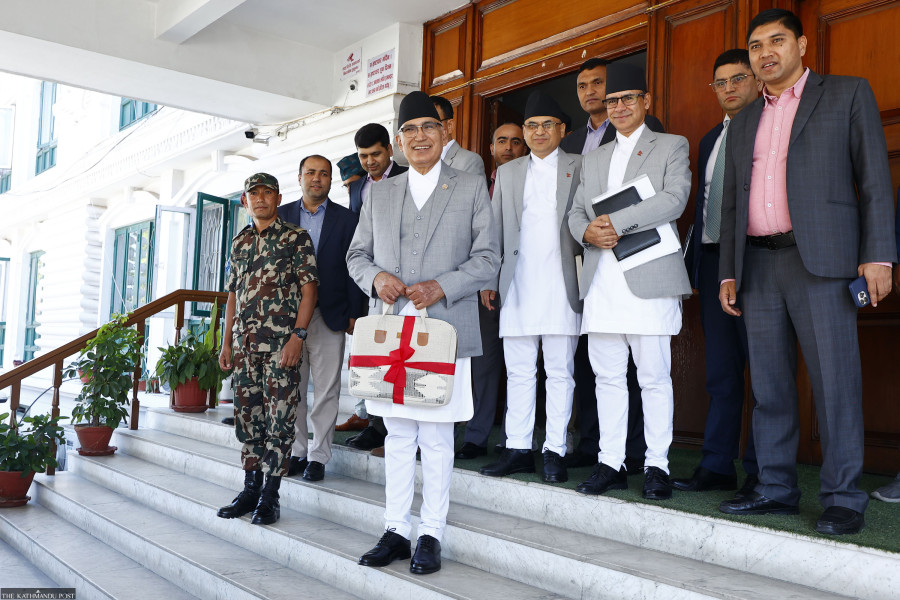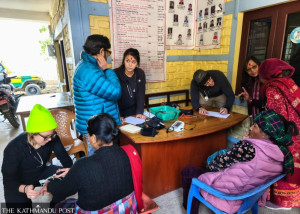Health
Experts raise alarm over low budget for non-communicable diseases
Government has cut funding for non-communicable diseases from Rs47 million this fiscal year to just Rs21 million next year, even though these diseases are responsible for 73 percent of Nepal’s deaths.
Post Report
The government has allocated Rs21.1 million to launch preventive measures against non-communicable diseases (NCDs), which account for 73 percent of the country's total deaths.
According to the Non-communicable Disease and Mental Health Section of the Epidemiology and Disease Control Division, the allocation falls far short of the Rs35 million budget ceiling set for the upcoming fiscal year 2025-26. In comparison, around Rs47 million was allocated for mental health and NCDs in the current fiscal year.
“We had planned several preventive measures against the growing burden of non-communicable diseases, but the allocated budget does not allow us to move forward,” said Dr Pomawati Thapa, chief of the section. “We cannot reduce the rising burden of non-communicable diseases without effective preventive measures.”
The burden of non-communicable diseases has risen alarmingly in recent years. The Nepal Burden of Disease 2017 report had attributed two-thirds (66 percent) of total deaths to non-communicable diseases, while the figure jumped to 71.1 percent in the 2019 report.
“The Global Burden of Disease 2021 has shown that non-communicable diseases are responsible for 73 percent of total deaths, and the ratio could be even higher now,” said Dr Meghnath Dhimal, chief researcher at Nepal Health Research Council. “Despite the rising burden of non-communicable diseases, we have not invested much in preventive measures.”
Officials say that the Rs 21.1 million allocation under non-communicable diseases also has to cover mental health programmes. But this is a problem because the Supreme Court had on December 2 last year had ordered that mental health and non-communicable disease programmes should be run separately, which means additional budget is required.
The top court’s directive concerns budgetary commitment, enactment of mental health legislation, development of multidisciplinary workforces, awareness against stigma and discrimination, integration of people with mental health issues in communities, and promotion of alternative therapies, among other things.
Doctors say preventive measures in the NCD and mental health include addressing risk factors, promoting healthy lifestyles, discouraging use of tobacco and alcohol, promoting a healthy diet and physical activity, managing weight, and promoting mental relaxation techniques. Studies show growing consumption of alcohol, tobacco, salt and junk food, and insufficient intake of vegetables and fruits—which leads to cardiovascular diseases.
To lessen the existing disease burden of NCD and mental health, investment should be made for behaviour change, which requires more investments, according to doctors.
“Early diagnosis of ailments and timely, quality care should be ensured,” said Dr Basudev Karki, a mental health expert. “I don’t think the budget allocated for the non-communicable diseases and mental health programmes is enough to carry out preventive measures extensively.”
The government has also allocated a budget for financial relief to people having financially burdensome conditions—cardiovascular disease, cancer, renal failure, Alzheimer’s disease, Parkinson’s disease, head and spinal injury, sickle cell anaemia, and stroke.
Doctors say although financial relief helps address patients’ immediate needs, it is a curative measure and does not lessen overall disease burden.
Public health experts say it is high time to focus on non-communicable diseases, as their prevalence has risen alarmingly. They said many lives could be saved if testing for non-communicable diseases were made free. Along with free testing, authorities should focus on behavioural changes—improvements in eating habits and physical exercise, among other things, experts say.
“To address the existing burden of non-communicable diseases and mental health, investments should also be made in preventive measures,” said Karki.




 11.12°C Kathmandu
11.12°C Kathmandu













